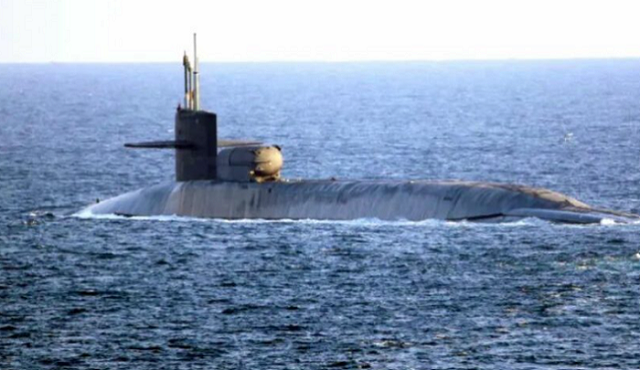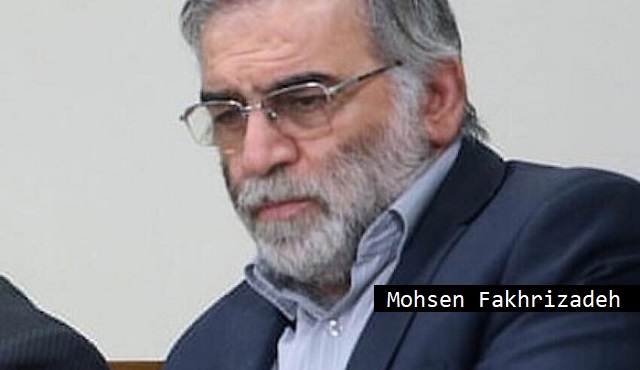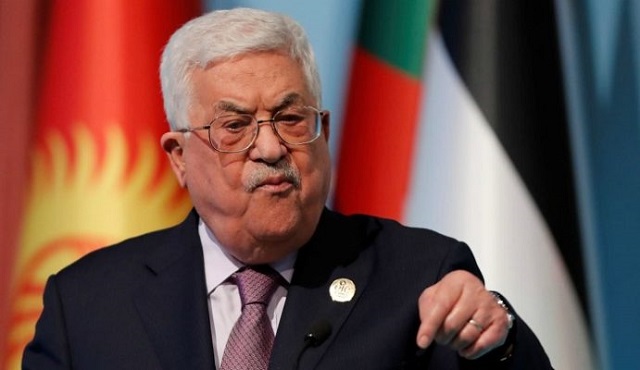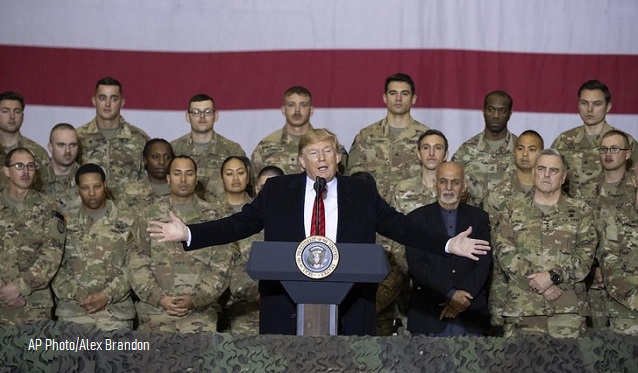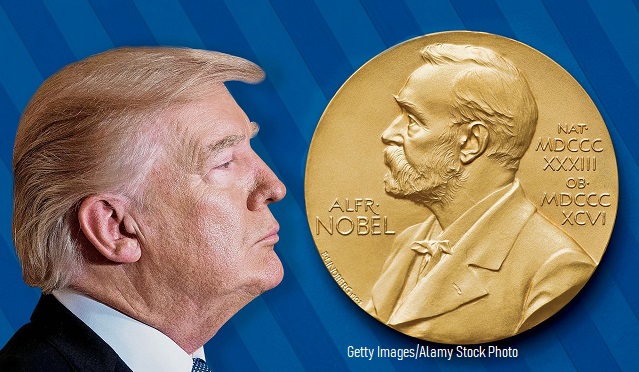
Donald Trump has just given the Nobel Peace Prize Committee another reason for awarding him that prize. After the U.A.E., Bahrain, and Sudan, a fourth Arab state – Morocco – has now announced it has agreed to normalize ties with Israel. “Morocco, Israel normalize ties as US recognizes Western Sahara,” by Omri Nahmias, Lahav Harkov, and Greer Fay Cashman, Jerusalem Post, December 11, 2020:
Israel and Morocco have agreed to establish diplomatic relations, US President Donald Trump announced on Thursday, Dec. 10.
Morocco became the fourth Arab country to normalize ties with Israel in four months, following the Abraham Accords with United Arab Emirates, Bahrain and Sudan.
“Another historic breakthrough today!” Trump tweeted. “Our two great friends Israel and the Kingdom of Morocco have agreed to full diplomatic relations – a massive breakthrough for peace in the Middle East!”
Israel and Morocco plan to reopen economic liaison offices, which were closed in 2002, and work quickly to exchange ambassadors and begin direct flights, Prime Minister Benjamin Netanyahu said.
In addition, Trump announced that he signed a proclamation recognizing Moroccan sovereignty over the Western Sahara, a disputed territory. “Morocco’s serious, credible, and realistic autonomy proposal is the ONLY basis for a just and lasting solution for enduring peace and prosperity!” he tweeted.
Morocco recognized the United States in 1777. It is thus fitting we recognize their sovereignty over the Western Sahara,” Trump added. No other UN member states recognize Western Sahara as part of Morocco.
That was the quid pro quo that Morocco required: recognition of its sovereignty over the Western Sahara. Just as the U.A.E. wanted, in exchange for agreeing to normalize relations with Israel, an American promise to sell the Emirates the Stealth fighter jet, the F-35 (and from Israel, it wanted, and received, a promise to suspend extension of Israeli sovereignty to parts of the West Bank), so King Mohammad VI wanted the U.S. to recognize Morocco’s claim to the Western Sahara. This was not only to satisfy the government in Rabat, but also could be held up to the Moroccan people as a diplomatic coup, so that they would be less inclined to resent the new ties to Israel.
The Trump administration viewed finalizing establishment of ties between the two countries as a prime goal in the past few weeks.
White House Senior Adviser Jared Kushner said normalization “comes on the heels of four years of very, very hard work and very intense diplomacy.”
The move is the culmination of a successful year of upgrading Israel’s relations with Arab and Muslim countries, beginning with Prime Minister Benjamin Netanyahu visiting Chad and meeting Sudan’s leader in Uganda, the Abraham Accords, as well as the warming relations and cooperation with Saudi Arabia, in addition to a number of other Arab states.
Israel proposed a scenario similar to what has since unfolded, by which normalization with Morocco would come in conjunction with American recognition of the Western Sahara, to the White House in the beginning of this year, as reported in multiple Israeli media sources.
French media reported that Morocco purchased three drones from Israel for $48 million in January.
This is evidence of ties already warming up long before the announcement on Dec. 10. Israel does not sell weapons to states with which it has less than friendly ties.
Like the Gulf states, Morocco views Iran as a threat. Rabat cut ties with Tehran in 2018, because Iran funded Western Sahara separatist movement Polisario via Hezbollah.
Long before that, Morocco had a relationship with Israeli intelligence agencies. Moroccan King Hassan II gave Israel recordings of an Arab League meeting [in 1965] that helped Israel prepare for the Six Day War, according to former IDF intelligence chief Shlomo Gazit and former intelligence officer and cabinet minister Rafi Eitan. That same year, the Mossad helped Morocco abduct a dissident from France.
King Hassan II provided Israel with a secret recording he had made of an Arab League meeting held in Casablanca in 1965, that revealed both the disunity among the Arabs and the parlous state of their military – especially that of Egypt. The tale of that Moroccan tip-off to Israeli military, that helped Israel win the Six-Day War, can be found here.
And Israel, in turn, helped Morocco. Mossad helped persuade a Moroccan dissident, Mehdi Ben Barka, to come to a rendezvous in Paris, where he was then kidnapped outside a famous restaurant, the Brasserie Lipp, by two French policemen working for the Moroccans; Ben Barka was never seen again.
Netanyahu, however, focused on the many Israelis of Moroccan origin and not security matters in his remarks on normalization, which he called a “great light of peace” in honor of Hanukkah.
“Everyone knows the warm ties of the kings of Morocco and the Moroccan people to the Jewish community there,” Netanyahu said. “Hundreds of thousands of Jews moved to Israel from Morocco and they form a living bridge between the people of Morocco and Israel. This solid base is the foundation on which we build this peace.”
Trump’s proclamation said the US “affirms, as stated by previous Administrations, its support for Morocco’s autonomy proposal as the only basis for a just and lasting solution to the dispute over the Western Sahara territory…An independent Sahrawi State is not a realistic option for resolving the conflict and that genuine autonomy under Moroccan sovereignty is the only feasible solution.”
“Therefore, as of today, the United States recognizes Moroccan sovereignty over the entire Western Sahara territory.”
The White House also urged the sides in the Western Sahara conflict to return to the negotiating table under the framework of Morocco’s plan for autonomy for the Sahrawi people of Western Sahara.
Morocco’s sovereignty over the Western Sahara has been recognized by the U.S., but it is expected that the Sahrawi people will enjoy a large degree of autonomy. We will see if that promise by Morocco is borne out. And we still don’t know if that “autonomy” will give the Sahrawis a fair share of the revenues from the huge deposits of phosphates in the Western Sahara.
The US plans to open a consulate in Dakhla, in Western Sahara, which the Moroccan Foreign Ministry said would have “a primarily economic vocation.”
Kushner said recognizing Moroccan sovereignty in the Western Sahara was “something that seemed inevitable at this point; is something that we think advances the region and helps bring more clarity to where things are going.”
Following the announcement, President Trump spoke with King Mohammed VI of Morocco. According to a readout provided by the White House, “the leaders discussed cooperation in the fight against the coronavirus, ways to minimize its economic impact, and common interests in critical regional issues.”
During the conversation the King agreed to resume diplomatic relations between Morocco and Israel and expand economic and cultural cooperation to advance regional stability,” the White House said in a statement.
King Mohammed told Palestinian President Mahmoud Abbas in a phone call on Thursday that Rabat stands by a two-state solution to the Israeli-Palestinian conflict, a royal court statement said.
Like the U.A.E. and Bahrain, Morocco has reaffirmed the boilerplate commitment to a “two-state solution to the Israeli-Palestinian conflict.” And like them, it has no plans to help the Palestinians beyond that recital; it has decided to promote its own national interests – its claim to the Western Sahara – over the demands of the Palestinians, who have been “betrayed” and “stabbed in the back” yet again, this time by Rabat’s willingness to normalize ties with the Jewish state.
The king added that negotiations between Israel and the Palestinians are the only way to reach a final, lasting and comprehensive solution to the conflict.
King Mohammed also highlighted his commitment to a two-state solution, as well as the importance of freedom of worship in Jerusalem, during his conversation with Trump.
Of course, there is now total “freedom of worship” in Jerusalem, as there was not during the 19 years of the Jordanian occupation. The only worshippers who may feel they don’t have “freedom of worship” are the Muslims from countries that have normalized ties with Israel, who have been cursed and threatened at Al-Aqsa mosque by angry Palestinians.
The White House, not Netanyahu, informed Foreign Minister Gabi Ashkenazi and Defense Minister Benny Gantz of the developments with Morocco several weeks before they were made public, contrary to the UAE, Bahrain and Sudan deals in which they were told at the last minute.
Ashkenazi said that “today is another great day for Israeli diplomacy, a day of light befitting the holiday of Hanukkah.
And Ashkenazi should have mentioned that it’s also “another great day for American diplomacy,” but since he didn’t, we’ll do it for him.
“Renewing relations between Israel and the Kingdom of Morocco is an important part of the Abraham Accords that reflects the deep and longstanding friendship between the nations. I call on more nations to join the Abraham Accords’ circle,” he stated….
It isn’t true that there has been a “deep and longstanding friendship between the nations” (of Israel and Morocco), but I suppose it’s a useful fiction. Ashkenazi might have said that “we all hope that this historic agreement will lead to a deep and longstanding friendship between our nations.” That would have been dignified, hopeful, and true.
Approximately one million Israelis are wholly or partly descended from Moroccan Jews, the second largest group in Israel after the Jews from Russia. They are well disposed to their original home and to the present King Mohammed VI, who like his father, King Hassan II, is known for his sympathetic interest and affection for the Jews in the Kingdom.
Furthermore, King Mohammed VI’s senior advisor is Andre Azoulay, a Moroccan Jew who previously advised Mohammed’s father, King Hassan II.
The Moroccan king’s philosemitism, beside his interest in Moroccan Jews, is expressed in the distinct absence of any animus toward Israel, a view which he surely inherited from his father. His father hosted two Israeli prime ministers, Rabin and Peres, in Morocco, and remained friendly with Rabin until the end of the Israeli’s life, and with Peres until the end of his own, even when Israel and the Palestinians in Gaza were engaged in war. King Hassan II’s father, King Mohammed V, blocked efforts by Vichy officials to impose anti-Jewish measures on Morocco and deport the country’s 250,000 Jews to their deaths in Europe, and is revered for that by Morocco’s Jews and their descendants in Israel.
King Hassan has been celebrating Morocco’s Jewish heritage in recent years, and bringing other Moroccans along with him. “Judaism is part of Moroccan identity,” said Zhor Rehihil, Muslim conservator at the Museum of Moroccan Judaism in Casablanca, the first of its kind in the Arab world. “We still have a Jewish memory, even though the Jews left.” No other Arab state has devoted so much attention to its former Jewish population.
This normalization of relations with a fourth Arab state has gone off without a hitch. The sky has not fallen. The Palestinian Authority, still smarting from its treatment by the Arab League (that refused to denounce the U.A.E. and Bahrain), has been quiet. Morocco’s decision to normalize relations is likely to increase the pressure on other Arab and Muslim states to follow suit. Each additional Arab state that normalizes relations with Israel increases the gravitational pull on the others that have not. They’ve all taken note of the granting of national wishes – the F-35 sale for the U.A.E., the recognition of its sovereignty over the Western Sahara for Morocco, the removal of economic sanctions for the Sudan – by the American government. What would it take to get Oman to follow suit? Or Mauritania? Or Tunisia? And what of Saudi Arabia, whose King Salman thinks one way about normalization of ties with Israel (which he insists can only happen after a Palestinian state in the “pre-1967 lines” is created), and his son the Crown Prince, who doesn’t give a damn about the Palestinians, quite another?
Another coup for President Trump, in achieving yet another astonishment, but will the Biden transition team be willing to recognize this feat of diplomatic finesse? I have my doubts.
COLUMN BY
RELATED ARTICLES:
Trump Middle East Peace: Chanukah Celebrations in DUBAI
Falls Church, Virginia School Board Cancels Thomas Jefferson
Likely arrival of Biden administration leads to erroneous calculations and false expectations in the Middle East
EDITORS NOTE: This Jihad Watch column is republished with permission. ©All rights reserved.
